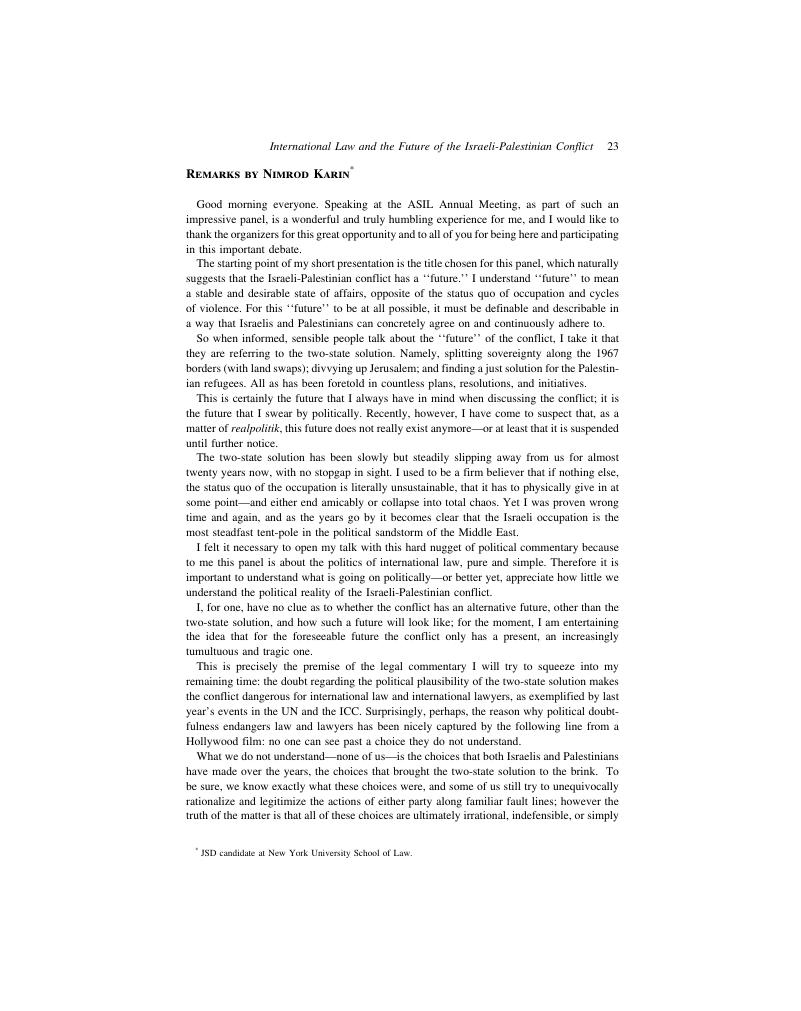No CrossRef data available.
Article contents
Remarks by Nimrod Karin
Published online by Cambridge University Press: 20 January 2017
Abstract

- Type
- International Law and the Future of the Israeli-Palestinian Conflict
- Information
- Copyright
- Copyright © American Society of International Law 2016
References
4 “Belligerent occupation” is the international legal regime applicable to situations in which a state exercises effective control over the territory of another state without the consent of the latter, usually as a result of an armed conflict. The black letter law of belligerent occupation is mainly contained in certain provisions of the (Fourth) Hague Convention Concerning the Laws and Customs of War on Land, Oct. 18, 1907, 205 C.T.S. 277 (Articles 42-59 of the Annexed Regulations Respecting the Laws and Customs of War on Land); and of the (Fourth) Geneva Convention Relative to the Protection of Civilian Persons in Time of War, Aug. 12, 1949, 75 U.N.T.S. 287 (Articles 27-34, 47-78). For the two most authoritative, thorough, and up-to-date treatises on this topic, see Benvenisti, Eyal, The International Law of Occupation (2d ed., 2012)CrossRefGoogle Scholar; Yoram Dinstein, The International Law of Belligerent Occupation (2009). Naturally, both authors devote much attention to the Israeli practice in this regard.
5 G.A. Res. 68/262, U.N. Doc. A/RES/68/262 (Mar. 27, 2014).


